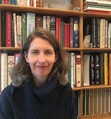Lory Widmer Hess's Blog, page 11
December 3, 2023
Month in Review: November 2023
November is a busy blogging month! At the beginning of the month, I participated in Witch Week – a very full week indeed. My contribution was an interview with Kiyash Moncef, author of the wonderful fantasy Once There Was.
Then it was time to focus on nonfiction for Nonfiction November. My posts:
My Year in NonfictionBook PairingsWorldview Changers: The Sixth ExtinctionNew to my TBRReading-wise, I went on a bit of a Dani Shapiro jag; I’d read her fascinating memoir Inheritance a couple of years ago, and thought I’d get caught up on the earlier parts of her story. It’s a bit strange to read those earlier books, because Shapiro is lacking important information about her own parentage (revealed in Inheritance), which surely plays into her lost, disoriented feelings. Her spiritual questing was especially interesting in light of my Spiritual Memoir Challenge. How much of our searching is actually fueled by what we don’t know about our ancestry?
I also joined in a readalong I came across at Consumed by Ink: the two books featuring Sara Stanley or “The Story Girl” by L.M. Montgomery. The books had a very different tone, and it was illuminating to learn that one was written just before and one after her marriage. This might account for what I found a more cynical and bitter tone in the latter.
I had back to back reviews at Shiny New Books this month: The Temple of Fortuna by Elodie Harper, and Charmed Life by Diana Wynne Jones. I was especially happy to see the latter, one of my favorite books, get some attention and a lovely new edition from the Folio Society.
Finally, I announced plans to start an “Ozathon,” reading the 14 Oz books by L. Frank Baum, in company with Deb from The Book Stop.
Have you read any of these, or what are your highlights this month?
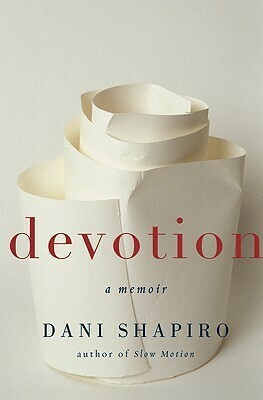 After by Bruce GreysonThe Story Girl and The Golden Road by L.M. MontgomeryLandlines by Raynor WinnDrinking: A Love Story by Caroline KnappOne Hundred Saturdays by Michael KnappSlow Motion, Devotion and Hourglass by Dani Shapiro
After by Bruce GreysonThe Story Girl and The Golden Road by L.M. MontgomeryLandlines by Raynor WinnDrinking: A Love Story by Caroline KnappOne Hundred Saturdays by Michael KnappSlow Motion, Devotion and Hourglass by Dani ShapiroFind my reviews at The StoryGraph
LanguageOn the recommendation of my German tutor, I’ve started reading Die Wand (The Wall) by Maren Haushofer, in which a woman staying at a house in the mountains wakes up to discover an invisible wall has appeared and everyone else seems to have been destroyed by some mysterious catastrophe.
I read very slowly, so not much has happened yet. The narrator is still in shock and not wanting to think much beyond the present moment.
How will she survive? Perhaps next time I’ll have some news.
 Life
LifeThe last weekend of November was very busy with the Advent fair season beginning — I had to spend all of Saturday at one for work and all of Sunday at one for my son’s school.
I do not feel ready for the holidays! But they will soon be upon me, nevertheless. I’d better get off the computer and do something about it.
How is your month going?
Linked at The Sunday Post at Caffeinated Book Reviewer, the Sunday Salon at Readerbuzz, and the Monthly Wrap-up Round-up at Feed Your Fiction Addiction
December 1, 2023
#Ozathon24 begins: The Wonderful Wizard of Oz
I’m so happy to be hosting an Ozathon – that is, a book-per-month readalong of the 14 Oz books by L. Frank Baum. Even if you don’t manage to read all the books, you’re welcome to join any time and sample some of the series. I’m looking forward to this journey with you. See the full schedule here.
I’m grateful to my co-host, Deb at The Book Stop, who enthusiastically agreed to join me. We’ll be sharing the hosting duties, and I’ll be directing you to her posts at times. Between us, we hope to offer a place where readers can share and discuss their impressions.
This month, we’ll be diving into the classic that started it all, The Wonderful Wizard of Oz. I don’t need to say much about it, for even those who have not read the book are probably familiar with the characters of Dorothy, the Scarecrow, the Tin Man, and the Cowardly Lion. But if you’ve only seen the movie or another adaptation, it’s worth reading the original. And I hope you’ll be inspired to go on from there; there is much more of Oz to be discovered.
A free ebook can be downloaded from Project Gutenberg here. I recommend choosing a version with illustrations if possible, even though with ebooks the typography and design can’t be reproduced fully. At least you will get an impression of the original W.W. Denslow art. In print, many different editions are available.
I’ll be posting my own thoughts at some point during the month. If you write your own post, leave a link in the comments here and I’ll do a wrap-up at the end of the month. See you on the yellow brick road…
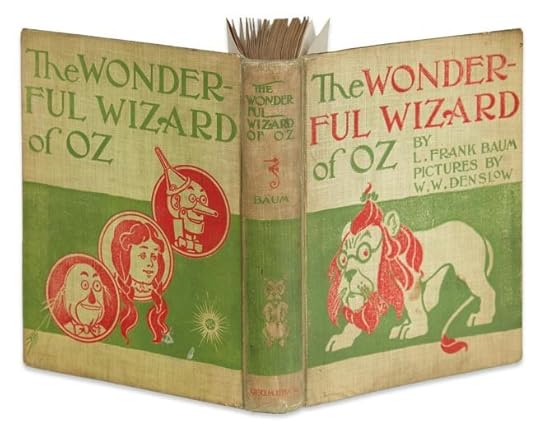
November 28, 2023
Nonfiction November: New to my TBR
This week’s topic is hosted by Hopewell’s Library of Life.
It’s been a month full of amazing nonfiction books! Which ones have made it onto your TBR? Be sure to link back to the original blogger who posted about that book!
Indeed, it’s been another wonderful Nonfiction November, and as usual I’d discovered so many fascinating books. Here are just a few I’d like to read in the near future:
Mozart’s Starling – recommended by Unsolicited Feedback
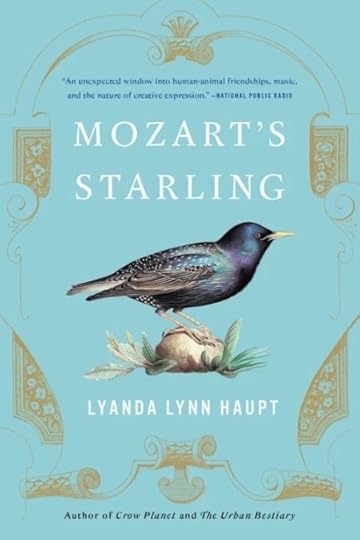
A Lady’s Life in the Rocky Mountains – recommended by Words and Peace
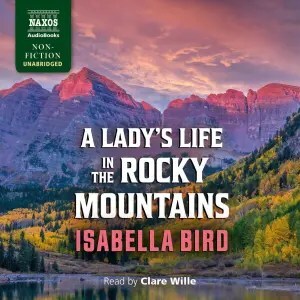
The Last Girl – recommended by The Book Stop
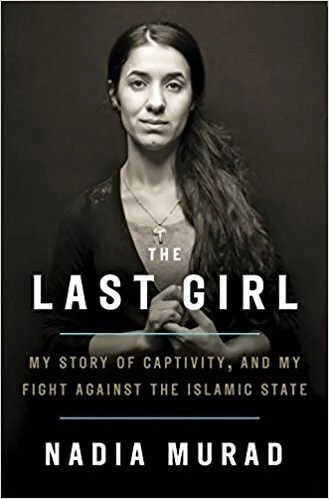
Hypatia (fiction) – recommended by Literary Potpourri
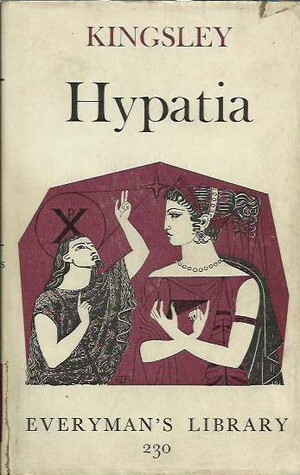
The Violence Inside Us – recommended by Lisa Notes
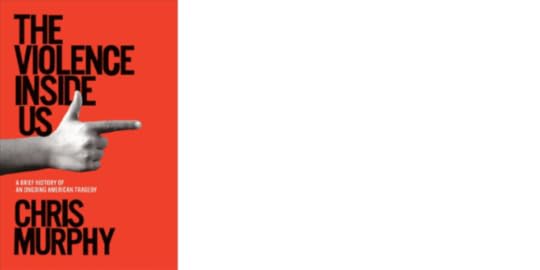
What have you added to your list this month?
November 26, 2023
Over at Shiny New Books: Charmed Life
I’ve got back-to-back reviews up at Shiny New Books, with my review of the new Folio Society edition of Charmed Life posted this week.
Neil Gaiman and I have at least one thing in common: we both started reading Diana Wynne Jones when we picked up one of her books at age 16 in the children’s department of a local bookshop. And we even started with the same book: Charmed Life, originally published in 1977.
I learned this fun fact by reading Gaiman’s foreword to the new, gloriously bound and illustrated Folio edition, in which he also says “when I finished reading Charmed Life I had a new favourite author.” Same here.
I’m so happy to see one of my favorite authors getting the treatment she deserves, and am hoping that Folio will consider publishing more Chrestomanci books. (What is Chrestomanci? Check out the review, or better yet, just pick up Charmed Life and start reading. You, too, might acquire a new favorite author.)
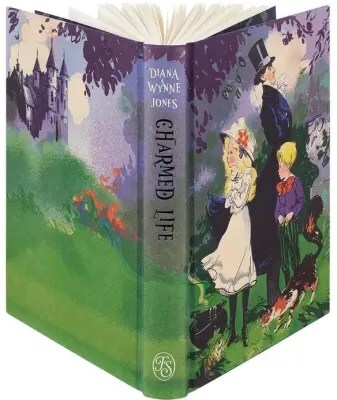
November 23, 2023
Of science and spirit: I’ve Seen the End of You
Following my read of Faitheist, I was interested to read a memoir by a person of faith who was also a scientist. I came across I’ve Seen the End of You by Lee Warren, a neurosurgeon who struggles with the purpose of prayer when he is confronted by many patients with incurable brain tumors. How can he pray for their healing when he knows they are going to die? He is further challenged when his son dies tragically. How can God allow all this suffering?
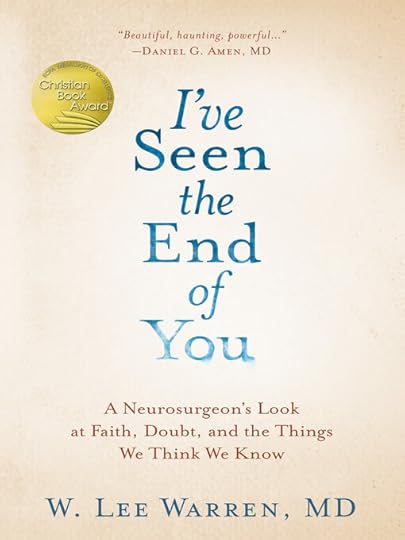
While his position as a brain surgeon means that he is in contact with extreme, life-altering situations more than most people, the questions he has are common and relatable. Readers who don’t share his Christian faith may still be touched by his honest grappling with the events that challenge his notions of how life should work. And anyone who does hold a view of a loving Creator must at some point do the same inner wrestling, or else faith remains an empty and hollow thing.
I confess that the place Warren starts from seems quite naive to me. How can a person with any degree of education or life experience at all still believe that prayer is a matter of just asking for what you want and getting it if you are good and sincere enough? It’s obvious that not every deserving person who prays for healing gets it, even if some such prayers appear to be answered. And yet, apparently one can be a good doctor and a good scientist and still hold that view.
But Warren’s destiny won’t let him stay there. As he describes the events that overturn his simplistic views, his caring heart is apparent as well as his need to live in a universe that makes sense. When things don’t make sense, it’s a challenge to keep one’s heart open and continue to care. People have many ways of dealing with that tension, and we meet them through Warren’s patients, who respond to their own diagnosis of imminent death with various degrees of resistance, despair, defiance, and belligerence.
But there are also stories of transformation and radical acceptance, which are challenging in another way, raising new questions. What if a diagnosis of terminal cancer is not the worst thing that can happen to us after all? What if not living while we are alive is even worse than dying?
There are no pat answers at the end of this tale, just a human being who has grown through his questions. He has come to see prayer not as a way to change the things that happen to us, but to change ourselves and the way we respond to those happenings. Admitting the need for such inner transformation is something that I think can transcend differences between people, for we may not all believe the same things, but when life deals us a difficult hand, we all need to find a way through it. In his candid, courageous exposure of his own changing mind, Warren shows us the very human face of both doubt and faith.
W. Lee Warren, I’ve Seen the End of You: A Neurosurgeon’s Look at Faith, Doubt, and the Things We Think We Know (Crown, 2019).
Spiritual Memoir Challenge: A book that engages with spirituality in relation to science and nature
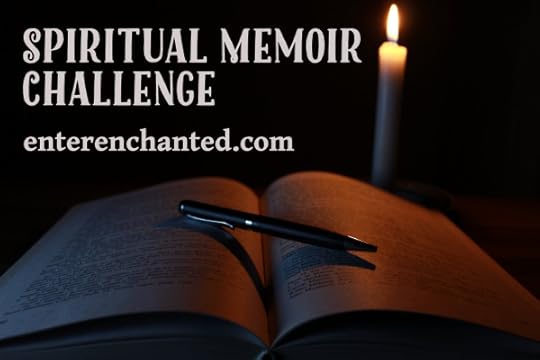
November 20, 2023
Worldview Shapers: The Sixth Extinction
This week’s Nonfiction November topic is hosted by Rebekah of She Seeks Nonfiction.
One of the greatest things about reading nonfiction is learning all kinds of things about our world which you never would have known without it. There’s the intriguing, the beautiful, the appalling, and the profound. What nonfiction book or books have impacted the way you see the world in a powerful way? Is there one book that made you rethink everything? Do you think there is a book that should be required reading for everyone?
I’m using this opportunity to re-post a review that I originally wrote for the Ruminate Magazine blog. That publication is now sadly defunct, so I want to give my review a home on the internet. And the subject is eminently suitable for this topic: The Sixth Extinction, a book that changed how I view history, evolution, science, humanity, and our future. If you haven’t yet read it, I hope you will.
What have been your worldview-shaping books? I’d love to know.
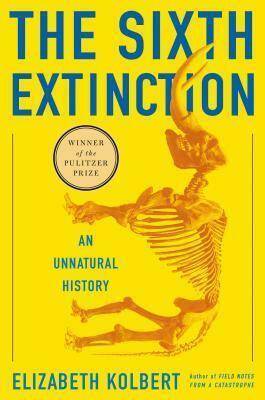
It took me three years to work up to reading Elizabeth Kolbert’s book The Sixth Extinction: An Unnatural History; I started reading it once and then returned it to the library after a few pages, unable to face the apocalypse quite yet. But in the final days of December I did manage to finish this account of how life on earth, having gone through five previous periods of mass extinction, is now in the midst of a sixth — one that we ourselves may not survive.
It’s a fascinating, riveting and deeply disturbing story, which ends with little doubt that within a few generations we will see the collapse of our ecosystem as we know it. This is due not just to the euphemistically named “climate change,” but to the accompanying acidification of the oceans, the proliferation of invasive species, the transport of deadly fungi to unresistant populations, and many other factors. The problem is not so much that the environment is changing, but that it’s changing too fast for evolution to keep up. And the agent of this precipitous, unprecedented change, it’s clear, is us.
Kolbert traces this history through thirteen chapters, each focusing on a different species that faced or is now facing extinction: the golden frog, the rhinoceros, the Neanderthal. In a clear, compelling narrative style, she points to different aspects of the great panorama of evolution and the particular slice we’re experiencing now. As we journey with her around the world, we may feel wonder at the amazing web of life, even as we are struck by sorrow at the march of death. In a terrible irony, it’s only at this moment in history that we are able to begin to fully understand what it is that we are killing off.
Along the way, she also reveals some surprising and illuminating information about science and the way it works. The very idea of mass extinction is fairly new, and was hotly contested until the evidence became too overwhelming to ignore. That story about how the dinosaurs died off when an asteroid hit the earth — enshrined in textbooks as it now is, it’s easy to forget that not long ago it was considered a wildly improbable theory. The popular image of Neanderthals is a fantasy spun out of a few fragments of bone, and the most modern DNA research can only provide more tantalizing but incomplete pieces of the puzzle. In science, as in life, the game keeps changing, and those who don’t keep up with it will be left behind.
For me, this was one of the most important things about Kolbert’s approach. A non-scientist herself, she helps us to understand and participate in the creative process that is true scientific investigation, and that regrettably tends to become deadened into a mindless recital of unquestioned assumptions. The reality is much more exciting and difficult to grasp than that, and I came away with an admiration and appreciation for the scientists who are working tirelessly on such questions as what exactly will happen as the pH of the ocean is lowered by the absorption of carbon dioxide, even as I was dismayed by their conclusions. They are dancing on the edge of the precipice we all unthinkingly walk, and we need to wake up and embody more of that investigative spirit ourselves.
At the moment, the assumption to question is that we humans have a right to be on earth and that it will indefinitely support us. When the very ground is taken from beneath our feet, where can we stand? What is left to us, when the familiar forms of our physical existence are taken away?
Nothing, perhaps—yet I wonder. Kolbert concludes her book with the observation that as we became symbol-making animals, humans gained the ability to change the world, and therefore to destroy it. She doesn’t go on to the next step, which would note that out of all creatures on earth, this also means that we alone have the ability to change ourselves. No animal, no plant, no stone can distance itself from the world in which it is embedded in order to become self-observant, self-reflective, and self-transforming.
This separating out of the individual self is a kind of death, and spreads death into the outer world when unaccompanied by love, empathy, and compassion. Right now, the death-dealing forces seem to have the upper hand, and yet anyone who has ever experienced one iota of the power of love knows that it is stronger. Therein lies the paradox of being human: we bear both potentials in ourselves, and only by fully penetrating this mystery can we become self-creative.
Humans alone have this astonishing ability: to die and become. How, in the coming decades and centuries, will we make use of it? Only the unborn selves of our future evolution can say.
The Sixth Extinction: An Unnatural History by Elizabeth Kolbert (Henry Holt and Co., 2014)
November 19, 2023
Over at Braided Way: Relearning the Alphabet
The lovely folks at Braided Way: Faces and Voices of Spiritual Practice have posted my essay “Relearning the Alphabet,” originally published in Parabola. I’m happy to have this long-ago creation now available online.
Each time we speak, we give birth. Something of our soul goes forth into the world, embodied in air.
It is remarkable that this indispensable tool of the thinking soul, so vital to our adult sense of self-awareness and to our intellectual development, is given to us in utter unconsciousness. Speech comes to us from an unknown realm of wisdom, a realm that has traditionally been identified with the divine, and with the divine sacrifice that makes life on earth possible.
I do hope you’ll take a look.
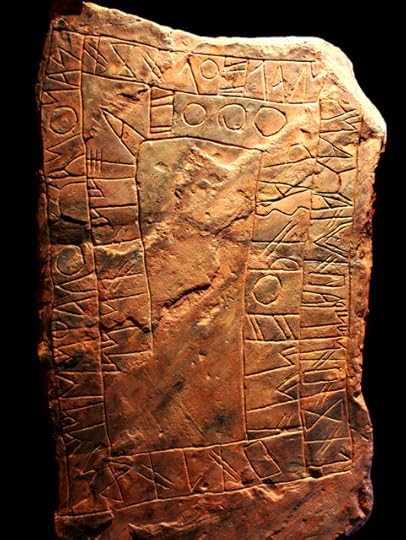
November 17, 2023
Over at Shiny New Books: The Temple of Fortuna
I’ve just reviewed the third volume of Elodie Harper’s Wolf Den trilogy, The Temple of Fortuna, for Shiny New Books.
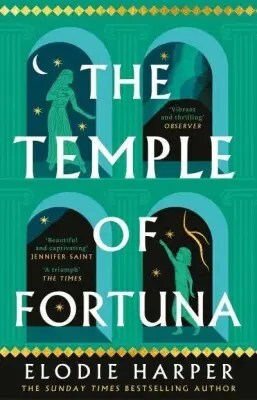
My short review is: “Read these books, they’re excellent.” (With caveats to those who may be triggered by descriptions of sexual abuse – the central character is forced into prostitution in ancient Pompeii – or volcanic eruptions.)
However, if you’d like to learn more, my review of the first book, The Wolf Den, will avoid spoilers for the others.
If you’re really curious, you can also check out my reviews of The House with the Golden Door and The Temple of Fortuna.
Good reading!
November 14, 2023
Nonfiction November: Book Pairings
This week’s topic is hosted by Liz of Adventures in Running, Reading, and Working from Home. And it’s my favorite!
Week 3 (11/13-11/17) Book Pairings: This week, pair up a nonfiction book with a fiction title. Maybe it’s a historical novel and the real history in a nonfiction version, or a memoir and a novel, or a fiction book you’ve read and you would like recommendations for background reading. You can be as creative as you like!
I always have fun with these pairings, because inevitably my fiction and nonfiction reading lists throw up some surprising correlations. Increasingly, these seem eerily serendipitous: some completely unexpected similarity crops up in books that I read in close succession. Here are a few examples from this year.
Preparing for death, with reference to the belief that when a person dies a window must be opened to let the soul fly outNonfiction: Terry Pratchett: A Life in Footnotes by Rob Wilkins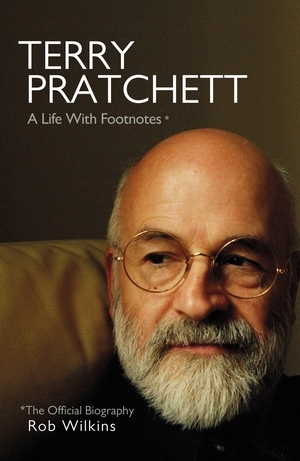 Fiction: Three Apples Fell from a Tree by Narine Abgaryan
Fiction: Three Apples Fell from a Tree by Narine Abgaryan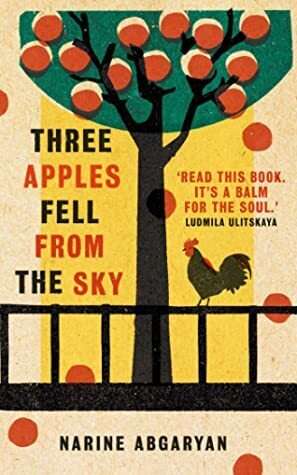 A prince who trains as a killer and breaks with family traditionNonfiction: Spare by Prince Harry
A prince who trains as a killer and breaks with family traditionNonfiction: Spare by Prince Harry Fiction: Pyramids by Terry Pratchett
Fiction: Pyramids by Terry Pratchett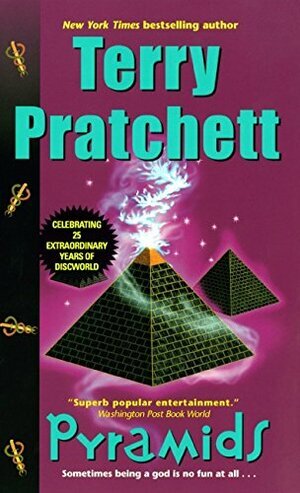 Trekking through IcelandNonfiction: The Wild Silence by Raynor Winn
Trekking through IcelandNonfiction: The Wild Silence by Raynor Winn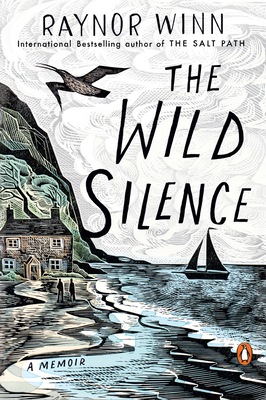 Fiction: Voyage au centre de la terre by Jules Verne
Fiction: Voyage au centre de la terre by Jules Verne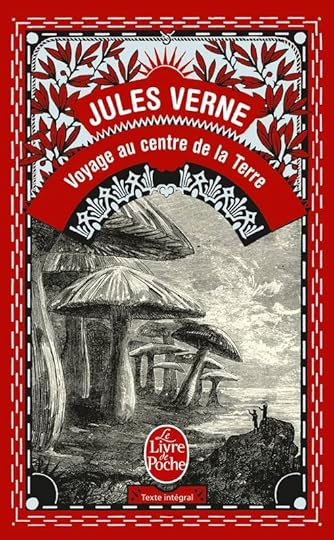 A person with locked-in syndromeNonfiction: The Diving Bell and the Butterfly by Jean-Domninique Bauby
A person with locked-in syndromeNonfiction: The Diving Bell and the Butterfly by Jean-Domninique Bauby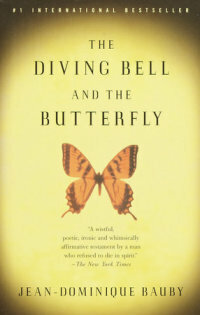 Fiction: The Count of Monte Cristo by Alexandre Dumas (Bauby was actually planning a retelling of The Count of Monte Cristo when he was paralyzed by a stroke)
Fiction: The Count of Monte Cristo by Alexandre Dumas (Bauby was actually planning a retelling of The Count of Monte Cristo when he was paralyzed by a stroke)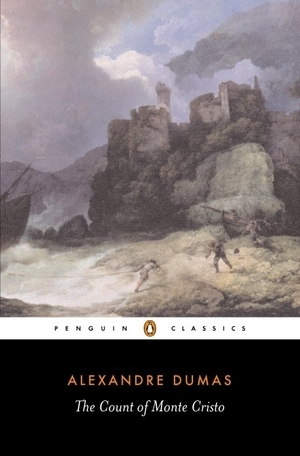
These are just some of the most striking connections I found this year. What were yours?
November 12, 2023
Pinned post: Join us in an Ozathon? #Ozathon24
I’ve decided to start a readalong of the Oz books by L. Frank Baum. This follows two book-a-month readalongs hosted by Calmgrove that I have greatly enjoyed: the Narniathon in 2022 and LoveHain in 2023. As he’s not hosting another such event next year, I know I’m going to miss this part of my reading life, so I decided to start one of my own. I am delighted to announce that The Book Stop, home of a fellow Oz fan, will be joining me as co-host.
The Oz books were central to my reading life as a child, and I’m interested to look back at how they shaped me then and what they might say to me now. There are 14 books, and the plan is to start in December and read in published order through January of 2025.
If you’re not up for such a commitment, though, there will be a stopping point at the end of the first six books. Baum actually tried to end the series here — he wanted to write other things — but his fans wouldn’t let him, so he reluctantly went back to writing an Oz book a year till the end of his life. The later books have some good parts, but the first six are probably the strongest. You’ll get a good taste of Oz that way, even if you don’t go further.
It’s not necessary to read all of them, or read them in order. Feel free to dip in as you wish.
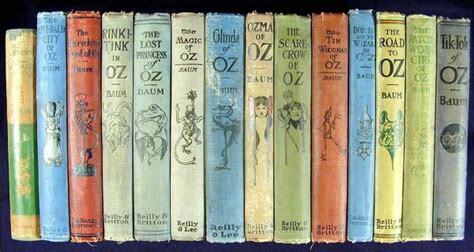 A well-loved set of Oz books
A well-loved set of Oz booksOtherwise, I just have one recommendation: Read an illustrated edition! When I read an ebook without illustrations, I realized how much the artwork had contributed to my experience of these books. The first book, The Wonderful Wizard of Oz, was a landmark of book design and illustration and has gone through many revisionings since then. The rest of the series was illustrated by John R. Neill in a distinctive style that I think greatly enhances Baum’s sometimes pedestrian writing. I’m sure his pictures were integral to the books’ initial popularity and success.
What about films and adaptations? No doubt these will come into the discussion, too, so bring whatever you’ve seen into the mix.
There will be a monthly post on each book, here or at The Book Stop or both, and a roundup of any posts that are shared with us. #Ozathon24 is the hashtag for sharing.
 Dorothy and Ozma, by John R. Neill
Dorothy and Ozma, by John R. NeillHere is the proposed schedule:
Part I: Essential Oz adventuresDecember, 2023: The Wonderful Wizard of OzJanuary, 2024: The Marvelous Land of OzFebruary, 2024: Ozma of OzMarch, 2024: Dorothy and the Wizard in OzApril, 2024: The Road to OzMay, 2024: The Emerald City of OzPart II: Further journeys in OzJune, 2024: The Patchwork Girl of OzJuly, 2024: Tik-Tok of OzAugust, 2024: The Scarecrow of OzSeptember, 2024: Rinkitink in OzOctober, 2024: The Lost Princess of OzNovember, 2024: The Tin Woodman of OzDecember, 2024: The Magic of OzJanuary, 2024: Glinda of OzI do hope you will join us for this exciting adventure.

